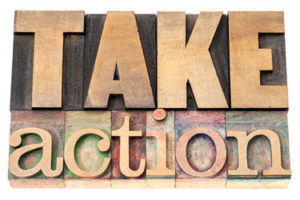For those who participated in the Women’s March in Washington, D. C. and across the U. S. — millions by any estimate, and with protests taking place in more than 500 American cities and around the world — what’s next? For those in attendance at a protest and those who were there in spirit, now what? And for those who may not understand the passion with which “resistance” to the new administration is taking place — how to keep peace with friends and family members who disagree with your stance?
 The simplest answer: Get involved.
The simplest answer: Get involved.
Talk. Listen. Learn. Run for local office. Support someone running for local office. Tell those already elected how you feel on the issues that matter.
What “Issues” Ignite Your Fire… or Ire?
To say that the 2016 election was divisive is an understatement. Likewise, that the U.S. remains profoundly polarized. With each day’s antagonistic news cycle seeming to compound the enmity (if not open hostility) between those who support Donald Trump and those who do not — the very speed with which some of us feel assaulted is staggering.
The issues that divide us are neither simple nor few.
This is about our vision of America, and of ourselves. This is about personal and cultural values. This is about identities — some that seem to conflict and that don’t neatly categorize.
For some, differences on abortion laws alone are enough to take sides, whereas for others, differences in comprehension of and approach to race, jobs, environment and climate science, criminal justice, LGBTQ rights, healthcare, immigration, terrorism, money in politics (Citizen’s United) and involvement in the global economy are the key motivators for fervent dissent or avid support.
And then there is a very broad umbrella to cover a host of issues I will group under “women’s rights.”
As the phrase “women’s rights are human rights” showed us at the massive outpouring of diverse groups on January 21, issues impacting women cross demographic and economic lines, and touch on every aspect of daily life. For me, this is explicitly about respect — a citizen’s rights to be treated fairly and with dignity — including the right to control one’s own body, along with access to critical female healthcare, and receiving equal pay for equal work.
Women’s March Participants – What’s Next?
A massive demonstration is a statement. And January 21, 2017 made an impressive statement, with 5 million marching worldwide. As this Time article points out, and most would agree, statements must be followed up with constructive action. Apathy is unacceptable.
For some of us, the Women’s Marches have newly energized us to get involved in politics as never before.
We’re angry. And we should be.
Our rights can be so easily eroded. And they have been.
We don’t believe that patriotism requires falling into line behind whatever party is in power or whatever personality seems to be leading it. We do believe in “we” the people, however messy that reality. And we also believe in love thy neighbor –as “we the people” practice this principle every day — and we do so regardless of religious upbringing or political party.
This willingness to lend a hand to a neighbor or a stranger is part of My America. My big, messy, idealistic, roiling, reeling, and now “resisting” America.
The Women’s March website is making it very easy for us to exercise our fundamental rights as “we the people” — telling our elected officials what we care about. To find your senators in one step — just visit the site and enter your zip code. Up pop the names of your senators (with addresses, phone, Twitter), and you can print a postcard or send an email to let your elected officials know where you stand.
Looking for your representative in the House?
Go here to the House of Representatives site. Again, just enter your zip to find your representative, and scroll down for the address and phone.
Citizenship is a responsibility. As the speakers in D. C. reminded us, it is up to us to tell our representatives and senators how we feel on the issues. And if we don’t, we have only ourselves to blame for the world in which we find ourselves.
Bridging Our Divides, Fighting Our Ignorance
I confess, I’ve been perplexed and at times angered by people who disagree with me on issues that feel “obvious” — to me. But in some cases, they are only obvious through my personal lens. And that lens includes living overseas, and seeing other social and political systems at work. Effectively.
Still, I try to avoid heated go-nowhere arguments, and I don’t unfriend people who don’t share my viewpoints. Not on Facebook, and not in life. There are reasons my friends are my friends, and those reasons have to do with personal interactions that reveal their kindness, their honoring of family, and understanding why they behave and believe the way they do on issues that unite us, and also that divide us.
Not communicating with someone who respectfully expresses different views ensures not understanding their views — or vice versa. Not communicating strengthens divisiveness, defensiveness, and distance. Not communicating plays right into the hands of those who would benefit from our preoccupation with in-fighting and social media side shows.
Not speaking and not listening isolate us, and serve ignorance.
Here is an example.
Like millions of others, I rely on certain provisions in the Affordable Care Act (Obamacare). Critical provisions to do with affordable preventive care and pre-existing conditions. As for the current cost, it’s brutal. But I compare the premiums now to what I was paying before Obamacare, as an independent contractor, unable to get a “regular” job as a 50-something-year old single mother — and desperately trying to make ends meet as I juggled project gigs.
 In all the furor over ACA healthcare premiums at the end of the election cycle, where was the comparison of current participant costs to what it was like, say, six years ago, depending on age and employment status?
In all the furor over ACA healthcare premiums at the end of the election cycle, where was the comparison of current participant costs to what it was like, say, six years ago, depending on age and employment status?
Those pre-Obamacare premiums were sky high, not so different from now, and my access to care was less and of lesser quality. I wouldn’t be living with the legacy of pain issues that are now part of my life if I could have accessed better medical care back then. This is my experience; this experience shapes my views.
I have also lived in France where basic healthcare is considered a human right. Even as a “foreigner” in France, I received quality medical care that I could afford. Likewise, my French friends whom I’ve known for years.
That is the context for my views of the ACA, and also my view that single payer must be part of a common sense healthcare future — albeit difficult to achieve in the U. S. Until that time, ACA — however imperfect and in need of fixing — is better than going back to the relative “nothing” many of us had before.
But recently I read something written by an acquaintance who voted for Trump. I know this person to be intelligent, educated, hard working, and kind. What I didn’t realize was the extent to which certain ACA provisions were creating very real problems for his small business. How his family felt beaten down by provisions that didn’t impact me, while I experienced at least some relief in ways he did not.
By understanding this situation, by stepping outside my own bubble, I am in a better position to build bridges — not walls.
Ignorance Makes Us Vulnerable
We can list the issues dividing our nation, but in my opinion, our comprehension of them is likely superficial. Why is that?
- Our views are shaped by how they impact us personally, who we talk to about them, and the very human tendency to give more credence to opinions that reinforce our position rather than those that put our beliefs and assumptions at risk.
- We are reading and listening to media sources that offer biased views — and yes, that takes place on both the left and the right.
- Our understanding of the way laws are made in this country is limited. And we’ve been sleeping on the job, in part because we are busy — always so busy. And yet we find two hours to tweet, to snapchat, to visit on Facebook. What’s up with that?
Why else are we superficially informed?
This is complicated stuff. We aren’t lawyers or legislators. We aren’t economists or historians. We aren’t politicians used to wading through political doublespeak. We’re overwhelmed by the sheer size and complexity of our institutions.
It’s complicated because of our country’s history, because of cultural values that are so ingrained that we don’t even question their sense (or nonsense), because it is only natural to be informed by our own experience — which is significantly impacted by race, gender, class, region, income, religion, education and more.
We are struggling to separate ourselves from these many identities enough to gain an appreciation of “the other guy” and his or her points of view — from our own intersecting aspects of personal tunnel vision.
 But ignorance leaves us vulnerable to narrowed views. Ignorance paves the way to forms of government that are the antithesis of “we the people.”
But ignorance leaves us vulnerable to narrowed views. Ignorance paves the way to forms of government that are the antithesis of “we the people.”
So let’s visit the Women’s March website. Let’s tell our Congress how we feel on the issues. Let’s continue to peacefully protest — with our marching, our organizing, our running for office, our supporting candidates for office, our pens, our performances, our artwork.
Let’s talk with and listen to our friends and family who disagree with us. And let’s read. Let’s read more than our snippets of regurgitated messaging that masquerades as news.
Some Reading, FYI
That I am very much anti-Trump is not a secret. I am disgusted by his blatant disregard for the fundamental principles that this nation was founded on. I am appalled at what I consider the very antithesis of the American spirit that I see taking place in our government and in our culture, which Mr. Trump is capitalizing on. I believe the challenges that face us require thoughtful people who seek to build not destroy, to unify not divide, to respect not dismiss.
I do not believe in “alt-facts.”
I believe in data, in science, in separation of church and state, in civil rights, in human rights, in exercising an informed voice — and it will take much more work for us to become and remain informed in our current social and “traditional” media environment.
I believe in civil discourse, in watching out for my neighbor, in loving my neighbor — even when we disagree.
If we hope to persuade someone to change their perspective, being informed is essential. While too many of us are in need of Civics 101, we have a variety of sources to aid us in the learning process. For example, Ballotpedia.org is helpful with its explanations of how laws are made, and an excellent source for local, state, and federal election issues. Congress.gov is a little trickier to wade through, but it allows us to bone up on our representatives, their backgrounds, their voting records, congressional committees and schedules.
As one who believes in reading the foreign press, I have found the English language version of Germany’s Spiegel (International) to be excellent. I read EcoWatch and NPR. I also believe that the net worth of our politicians is important information, and several sites below offer insight into that subject.
These days, I’m reading more about politics and social issues than ever before in my life, except during the last few months leading up to the November 2016 election. The hours I once spent writing daily… I am now investing in reading.
And yes, reading takes time. Listening takes time. Let’s make the time. Our future depends on it.
I welcome your thoughts.
My thanks to HB for the image of the Atlanta march.

I just left a message of support for the mayor of my sanctuary city. He has take a very strong stand to keep our police force non reporting. So is our city council. I am very proud of our local leaders.
I’m trying to do one positive thing every day, whether it is giving a cause some money, marching or passing on info about petitions. This is what is keeping me sane during this idiotic time.
Love your approach. One positive thing a day. 🙂
I love your practical approach of doing one positive thing each day, as well – it’s a fabulous example to follow.
My 25 yr old daughter was in the March in Chicago- she shared with me that the energy around her was uplifting and encouraging. I’m glad to see so much combined energy and action- as a mom of 3 and plus a new granddaughter- our voices deserve to be heard!
D.A., I appreciate your thoughtful discussion and I connect with the complexities involved. Complicated and conflicted are good adjectives for how I feel. I feel deep solidarity with women, but the tone of the message sometimes turns me off so badly that I feel like an outsider. In addition, I feel some of my differing beliefs are unappreciated and so my presence not embraced nor desired. When faced with the disconnects of idealism vs. pragmatism, I have to place myself with the reader above who chooses to face each day doing what I can.
You raise some very important points, Missy June. Tone and language are so much more important than some of us realize, and when we aren’t paying attention to both of these, our message may get lost. Or worse. Emotions can get the best of all of us of course, but as with any communication, we need to know our purpose and our audience and craft the tone of the message accordingly. Unfortunately, most of us in our every day lives don’t do that. We most particularly don’t do it when we get heated on political issues.
I had a chance conversation with a middle-aged woman this morning, and it drove this point home. Her differing views, which we began to discuss calmly and politely, also got me to thinking about how easily we label each other. She threw the term “liberal” around quite, well… liberally… and with slight derision. Yet as the conversation went on and we drove down to a lower level of detail in our talk, it was clear that she is not by nature someone who is unwilling to think through differing angles on the issues. And we do indeed tend to lump too much complexity into a single bucket and pop a label on it!
So I thank you for your thoughtful and considered reading, and likewise, your comments. I have so much respect for the way you live your beliefs without judging others whose beliefs may differ.
I’m honored to consider you a friend and regret that we never got to meet in person while you may have resided closer to home. Perhaps one day!
Yes! (Maybe we can have coffee over Skype one weekend…) ☕️
Wonderful post, DA. I’m not American. Trump is not my president… but wow… I and most of my friends are emotionally with you. Your ideas of taking time to educate ourselves on how our/your political system works, to actually read articles instead of just “sharing” click-bait headlines that do nothing but inflame anger or division is so wise. And just what people need to hear…read… right now.
Today I read a 5 part tweet from Elliot Lusztig reproduced on Bumble Ward’s twitter account. It says that Hannah Arendt in her book “the origin of Totalitarianism” notes how the decent liberals of 1930sGermany would “fact check ” the Nazis claims about Jews, failing to understand that the Nazi Jew hating was not a statement of fact, but a declaration of intent. So naive people would counter bizarre Nazi claims by saying there’s no evidence for that claim, not realising that what the Nazis were doing was not describing what was true, but what would have to be true to justify what they planned to do next.
Food for thought.
Yes!! This is a very good discussion of the question on so many lips: “what can we do now?”. As I talk with virtually anyone willing to talk with me about what is going on, I encounter so many people who know little about civics and therefore have difficulty understanding what is happening, much less how to impact it. Since I have a degree in political science, have worked in government, and am a lawyer, I try to be a resource on those topics. Maybe I’ll look for an organization that wants a volunteer to teach a course in civics. See what kind of thinking, and action, your post is encouraging!!! Thank you, D.A.
A course in civics is a splendid idea, Leslie!
I’m with Missy June on this, Leslie… Could I persuade you to pens something that would be useful to us?
I never thought I would be sending Thank you emails to 7 Republican senators (including Hatch and McCain!) but I did. These 7 people (Hatch, McCain, Collins, Gardner, Corker, Graham, Portman) have all publicly opposed some aspect of the Executive Order on Immigration.
I also called my state’s governor’s line and left a personal message of praise and thanks for showing up at the airport protest, and my state’s attorney general (who began his political career by knocking on every door in his district in 2003 when he first ran for a city council position. I remember opening my door and having a conversation with him). Other elected officials also showed up at the airport protest that was 1,000 strong. I cannot tell you how proud I am of my state’s elected officials and grassroots activism.